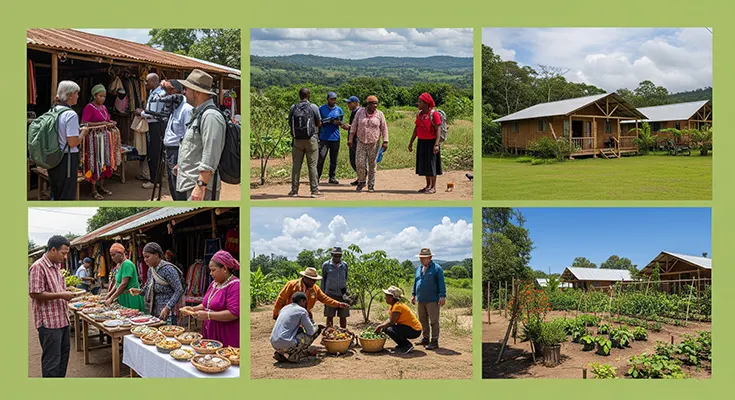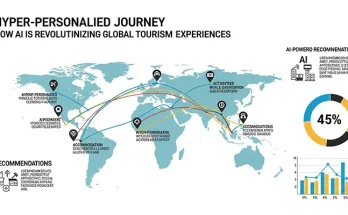In today’s globalized world, the tourism industry plays a vital role in economic development, cultural exchange, and environmental conservation. However, the rapid growth of tourism in emerging markets has also raised concerns about issues such as overtourism, environmental degradation, and exploitation of local communities. To address these challenges, it is crucial for businesses operating in emerging markets to develop ethical and responsible tourism business models that prioritize sustainable practices and positive impacts on local stakeholders. Here are some key strategies for developing such business models:
Embracing Sustainable Practices
- Community Engagement: Engage with local communities and stakeholders to understand their needs, concerns, and aspirations. Collaborate with community members in the planning and decision-making processes to ensure that tourism initiatives benefit the local population and respect their cultural heritage.
- Environmental Conservation: Implement eco-friendly practices to minimize the carbon footprint and environmental impact of tourism operations. Reduce single-use plastics, promote energy efficiency, and support conservation efforts to preserve biodiversity and natural resources.
- Cultural Preservation: Respect and celebrate the cultural heritage of the destination by promoting traditional crafts, cuisine, and customs. Collaborate with local artisans, cultural organizations, and heritage sites to support cultural preservation and create authentic experiences for visitors.
Empowering Local Communities
- Capacity Building: Invest in training and skill development programs for local residents to enhance their employment opportunities in the tourism sector. Provide fair wages, safe working conditions, and opportunities for career advancement to empower community members and promote economic resilience.
- Inclusive Tourism: Ensure that tourism benefits are distributed equitably among all segments of the population, including marginalized groups and women. Create inclusive tourism experiences that respect diversity, promote social equality, and foster mutual understanding among visitors and local residents.
Promoting Responsible Tourism
- Responsible Marketing: Communicate transparently and truthfully about the social and environmental practices of your tourism business. Avoid greenwashing and misleading marketing tactics by providing accurate information to consumers about the impacts of their travel choices.
- Educational Initiatives: Raise awareness among tourists about responsible travel practices and the importance of supporting ethical tourism businesses. Offer educational programs, workshops, and tours that highlight sustainability initiatives and encourage responsible behavior among visitors.
Developing ethical and responsible tourism business models in emerging markets is essential for promoting sustainable development, preserving cultural heritage, and protecting the environment. By embracing sustainable practices, empowering local communities, and promoting responsible tourism, businesses can create meaningful and positive impacts that benefit both visitors and host communities. As the tourism industry continues to evolve, it is crucial for businesses to prioritize ethical considerations and adopt responsible practices that contribute to the long-term well-being of emerging markets and their residents. By working together with local stakeholders, adopting a holistic approach to sustainability, and advocating for responsible tourism practices, businesses can help shape a more ethical and sustainable future for the tourism industry in emerging markets.





